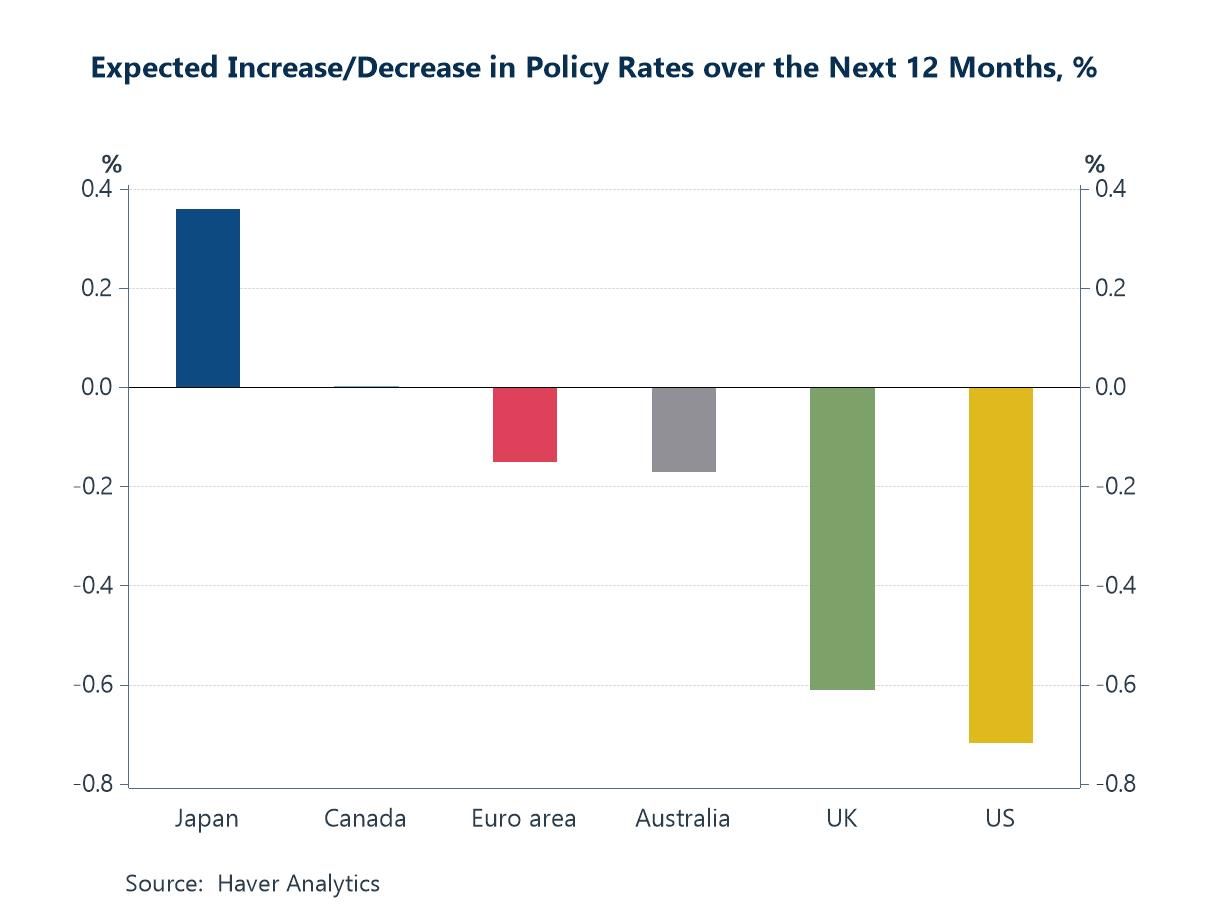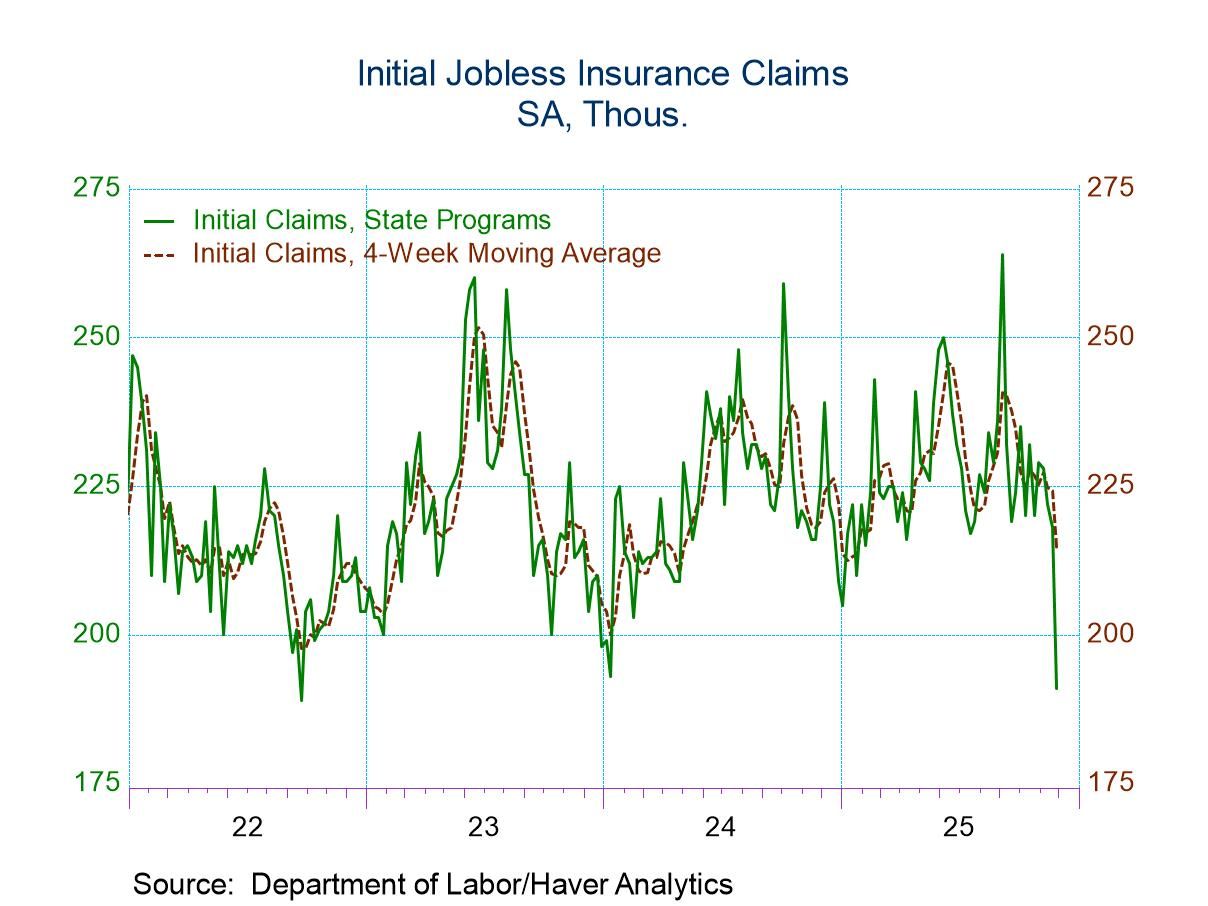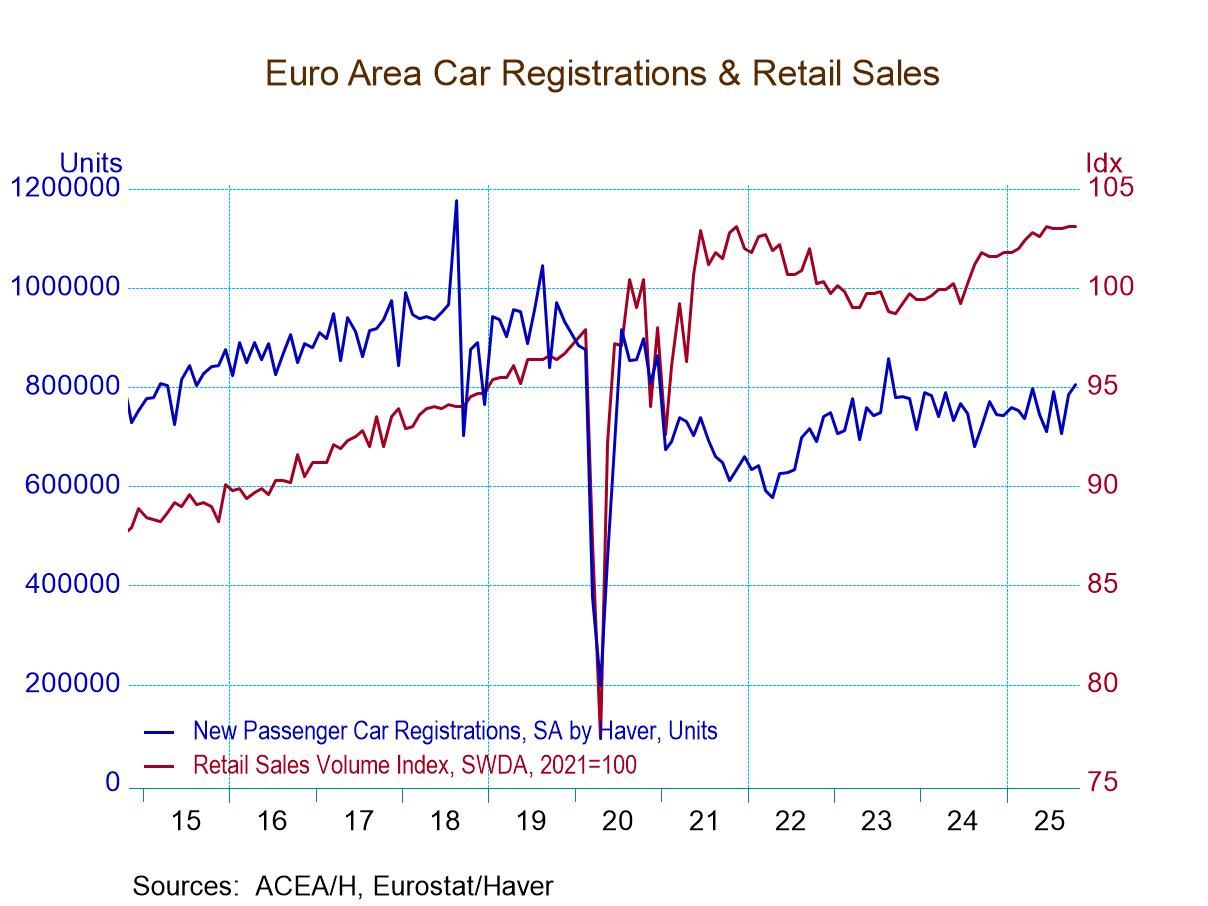 Global| Feb 26 2015
Global| Feb 26 2015German Climate to Reach New High in March
Summary
GfK projects a new high reading for Germany's consumer climate for March. Climate is expected to improve to 9.7 in March from 9.3 in February. The lagging components for economic and income expectations as well as for buying climate [...]
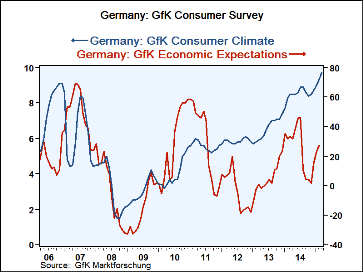 GfK projects a new high reading for Germany's consumer climate for March. Climate is expected to improve to 9.7 in March from 9.3 in February. The lagging components for economic and income expectations as well as for buying climate (available only through February) show queue standings that range from a 74th percentile standing (economy) to 96th and 97th percentile standing for the propensity to buy and for income expectations. Clearly, the Germany economy is firing on all cylinders.
GfK projects a new high reading for Germany's consumer climate for March. Climate is expected to improve to 9.7 in March from 9.3 in February. The lagging components for economic and income expectations as well as for buying climate (available only through February) show queue standings that range from a 74th percentile standing (economy) to 96th and 97th percentile standing for the propensity to buy and for income expectations. Clearly, the Germany economy is firing on all cylinders.
Even Italy is starting to show some elevation in its consumers' assessment of the economy as its index stands in the top 15% of its historic rankings. The U.K. index stands in the top 8 percentile of its queue. By comparison, France lags with queue standing that are only middling standings in their 55th percentile.
The German economy is reaching new heights. IG Metall, a key German company in its pattern bargaining framework, has just made a compensation settlement conferring a wage hike of 3.6% on its workers, a large gain for a German company. Clearly, Germans have a reason to have hiked their income expectations. Unemployment in Germany has fallen (it's stable this month) and the labor market is much tighter compared to most recent historic experience.
As Europe is on the verge of the implementation of the ECB's QE program, European stocks are up worshipping the gold-plated calf of monetary excess. Meanwhile, the euro exchange rate continues to be weak and that continues to pave the way for even more improvement in the German economy, Europe's most competitive economy.
We see German expectations reaching new heights albeit with some lagging for the economic index. Climate is shooting up through the moon. We continue to warn of the possibility of German overheating. European one-size-fits-none monetary policy may not be stimulative enough for the rest of Europe, but it is overheating Germany. The falling exchange rate is lighting a fire under an already heated German economy. We think this is a case where `more' is not necessarily `good.'
New monetary data for Europe today showed that loan demand continues to shrink but that money supply growth is picking up. There may be some good news in that for the prospect of the nascent QE program to take hold and have some positive effects for the rest of Europe. With the real QE plan about ready to start, it is time to sit up and take notice of all events economic and monetary in Europe. We think that putting Germany on watch for signs of overheating is part of that process just as is putting other countries on watch for signs of economic improvement.
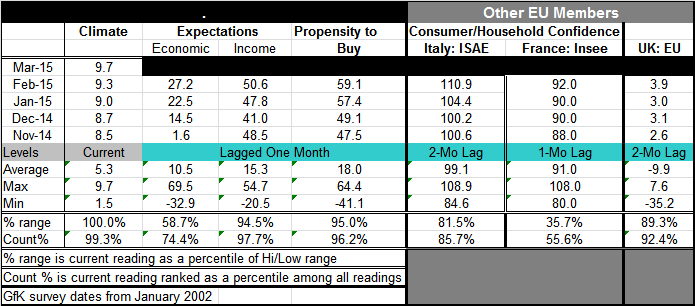
Robert Brusca
AuthorMore in Author Profile »Robert A. Brusca is Chief Economist of Fact and Opinion Economics, a consulting firm he founded in Manhattan. He has been an economist on Wall Street for over 25 years. He has visited central banking and large institutional clients in over 30 countries in his career as an economist. Mr. Brusca was a Divisional Research Chief at the Federal Reserve Bank of NY (Chief of the International Financial markets Division), a Fed Watcher at Irving Trust and Chief Economist at Nikko Securities International. He is widely quoted and appears in various media. Mr. Brusca holds an MA and Ph.D. in economics from Michigan State University and a BA in Economics from the University of Michigan. His research pursues his strong interests in non aligned policy economics as well as international economics. FAO Economics’ research targets investors to assist them in making better investment decisions in stocks, bonds and in a variety of international assets. The company does not manage money and has no conflicts in giving economic advice.



